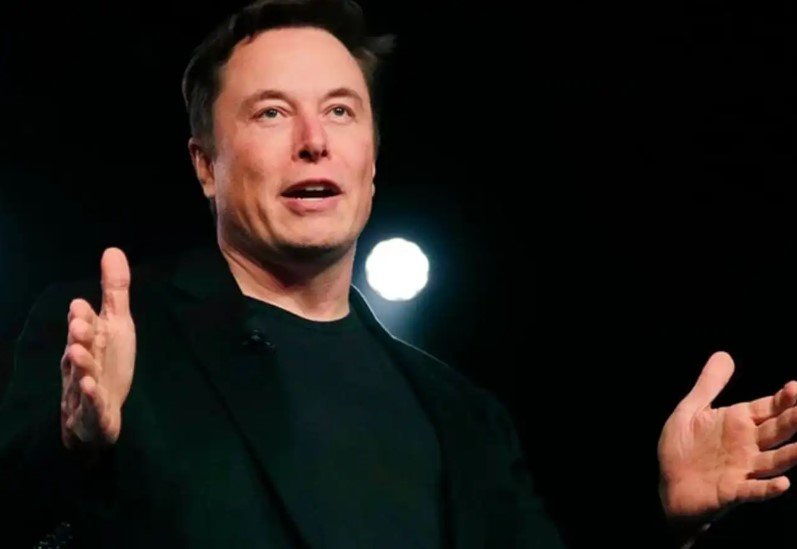A gesture made by Elon Musk at a Trump rally in Washington has ignited controversy, with critics accusing the tech mogul of making a Nazi salute. Musk, however, has quickly pushed back, calling the accusations tired and unfounded. The online debate surrounding the incident is a reflection of Musk’s growing entanglement in political discourse and his complex relationship with public perception.
Musk’s Controversial Gesture and the Backlash
It was a moment that quickly made its rounds on social media—Elon Musk, standing at the podium at a Donald Trump rally on January 20, 2025, tapping his chest before extending his arm with an open palm. While the action seemed innocuous to some, others, including several prominent historians and political figures, were quick to draw parallels to the infamous Nazi salute.
The rally, held at Washington D.C.’s Capital One Arena to celebrate Trump’s return to the White House, was filled with a mix of jubilation and political fervor. Musk, always the showman, addressed the crowd with his usual charisma, thanking them for their support of the Republican cause. However, when he made the gesture, the controversy began.
While some of Musk’s supporters were quick to dismiss the accusations, pointing to his self-deprecating humor and past statements about sarcasm, the gesture was interpreted by others as an overt and belligerent reference to Nazism. Historians Claire Aubin and Ruth Ben-Ghiat, both experts on fascism, were quick to highlight the similarities with the Nazi salute, stating that Musk’s actions were anything but innocent.

The Divide: Supporters and Critics Weigh In
As with many moments involving Musk, the incident led to a sharp divide in public opinion. Supporters of Musk, including several attendees at the rally, defended the gesture, suggesting it was nothing more than a playful wave. “He’s very humorous, and he uses a lot of sarcasm,” one rally-goer told AFP, dismissing the critics as overly sensitive.
Others, particularly on social media, pointed out Musk’s long history of controversial statements and actions, adding fuel to the fire. His recent expressions of support for far-right movements, including Germany’s AfD party and Britain’s Reform UK, have led some to question whether his gestures and comments are a reflection of deeper political leanings.
Meanwhile, far-right figures, including writer Evan Kilgore, celebrated Musk’s move, calling it “incredible.” Such reactions only served to heighten the controversy, further polarizing opinions about the billionaire entrepreneur.
A Response from Musk: ‘Everyone Is Hitler’
Elon Musk, known for his quick wit and sharp retorts, wasted no time addressing the backlash. On his social media platform, X, Musk dismissed the criticism with his characteristic flair. “Frankly, they need better dirty tricks,” Musk wrote. “The ‘everyone is Hitler’ attack is sooo tired.”
His response only added to the ongoing debate. While many of his followers appreciated the humor in his remark, others found it dismissive of a serious issue. Some commentators noted that Musk’s deflection was a common tactic to avoid addressing deeper questions about his political affiliations and actions.
The Anti-Defamation League Weighs In
One notable defender of Musk came from the Anti-Defamation League (ADL), an organization dedicated to combating anti-Semitism. In a statement posted on X, the ADL clarified that Musk’s gesture seemed to be an awkward movement made in a moment of enthusiasm, not a deliberate salute.
“We believe Elon Musk made an awkward gesture in a moment of enthusiasm,” the ADL said, adding that it didn’t appear to be an intentional Nazi salute. This stance was met with criticism from some political figures, including Representative Alexandria Ocasio-Cortez, who strongly condemned the ADL’s defense of Musk.
Ocasio-Cortez took to X, commenting: “Just to be clear, you are defending a Heil Hitler salute that was performed and repeated for emphasis and clarity.” This statement triggered a fresh wave of discussion, with many left wondering whether Musk had simply gotten caught up in the moment, or if there was a deeper intention behind his gesture.
Experts and Historians: A Divided Opinion
Historians continue to be divided on the meaning of Musk’s gesture. While some view it as a harmless mistake, others see it as part of a growing trend of public figures making increasingly provocative statements and gestures.
Aaron Astor, another historian, suggested that Musk’s gesture was likely an expression of social awkwardness rather than a deliberate homage to Nazi imagery. Astor, who has frequently criticized Musk for allowing far-right voices to thrive on his platform, explained that Musk’s behavior could be better understood in light of his Asperger’s diagnosis, which he publicly revealed in 2021.
“This is a socially awkward autistic man’s wave to the crowd where he says ‘my heart goes out to you,’” Astor wrote on X. His assessment serves to complicate the narrative surrounding Musk’s actions, adding a layer of nuance to the ongoing debate.
A Complicated Legacy
Elon Musk’s latest controversy is emblematic of his complex relationship with the public eye. Over the years, his actions—whether it’s his vocal support for controversial political causes, his clashes with the media, or his penchant for stirring up online debates—have often kept him at the center of public discussion.
The ‘Nazi salute’ incident, regardless of intent, highlights the challenges Musk faces in the current political climate. Whether it’s a genuine misunderstanding or a calculated move to play to a specific audience, the fallout from his actions will likely continue to be felt for some time.
